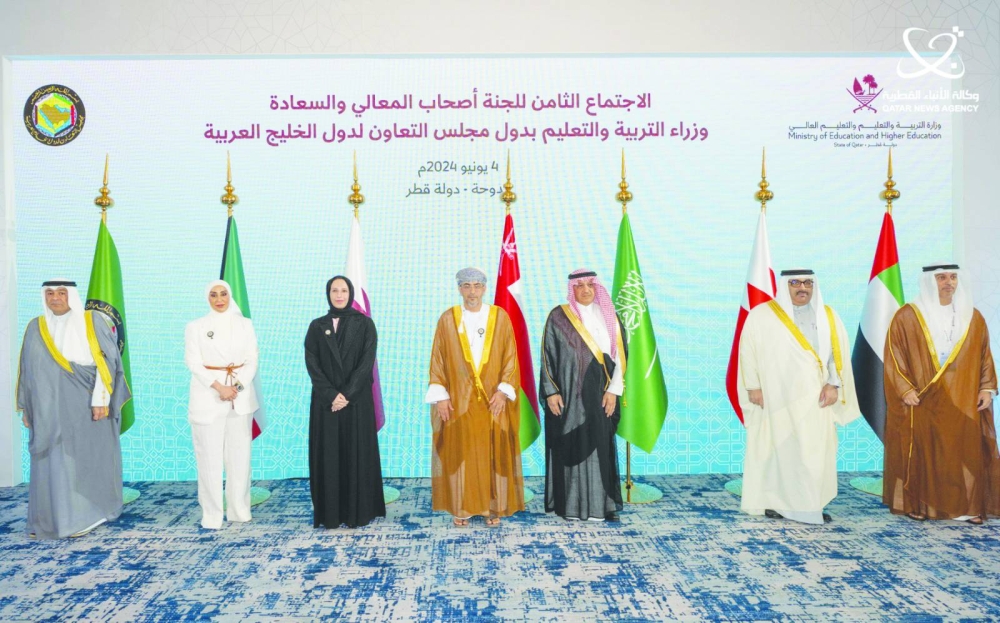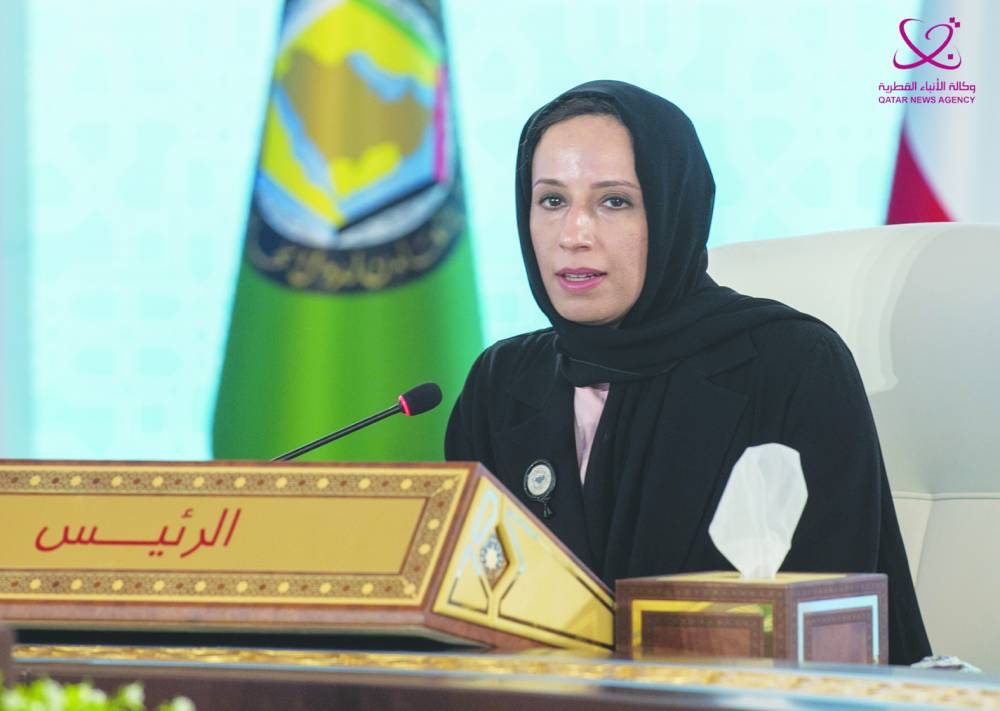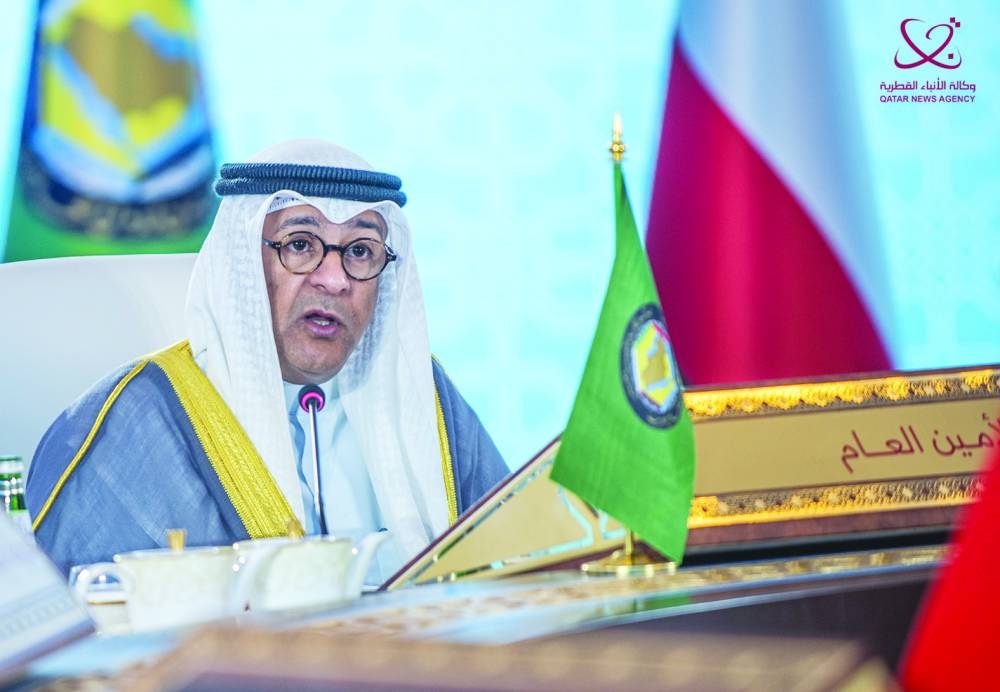Qatar on Tuesday hosted the 8th meeting of GCC education ministers and the 24th meeting of GCC ministers of higher education and scientific research. HE the Minister of Education and Higher Education Buthaina bint Ali al-Jabr al-Nuaimi chaired the two meetings in the presence of GCC Secretary-General Jasem Mohamed Albudaiwi.
At the outset, HE al-Nuaimi extended thanks and appreciation to His Highness the Amir Sheikh Tamim bin Hamad al-Thani and leaders of the GCC countries for their support and care for education. She thanked Oman for its fruitful presidency of the committee of the GCC education ministers, and the GCC General Secretariat for their tireless efforts in supporting and facilitating the committee's work.
HE al-Nuaimi noted that the 8th meeting of GCC education ministers would discuss a host of significant topics and issues, especially those related to the directives of leaders of the GCC countries, including the Riyadh Declaration of the 42nd session of the Supreme Council of the GCC countries regarding enhancing international co-operation, and the Al-Ula Declaration for the 41st session on education during crises.
She stressed that all these announcements reflect the shared future vision of the leaders and their great interest in developing education in the GCC countries.
In this context, she indicated that the meeting's agenda includes vital topics, including co-operation in achieving the fourth goal of the sustainable development goals of quality education, enhancing co-operation with countries and international and regional organisations, and discussing the protection of moral, religious and family values in Gulf societies, in addition to topics and proposals related information security to students, artificial intelligence, and on-the-job training.
She emphasised that these topics reflect ongoing efforts to enhance the quality of education and support innovation, digital integration, and cybersecurity in education. HE al-Nuaimi added that the future of education is linked to the ability to exchange experiences, develop capabilities, and benefit from the successful experiences of other countries.
GCC countries must constantly think about the suitability of their educational systems to the needs of today and tomorrow, focus on strengthening their educational systems to meet future challenges, develop the educational and moral values of young people, determine the skills required for the future work market, and develop effective and innovative educational policies to support achieving the goals of the 2030 sustainable development plan.
The GCC Secretary-General thanked His Highness the Amir for the constant and ongoing support for the joint Gulf action, and for the tireless efforts to enhance the educational process and raise the efficiency of the education system in the GCC countries.
He also noted the interest and keenness of the GCC leaders countries to advance the process of joint Gulf action to broader areas and horizons. He said that this meeting comes to achieve this trend by seeking to contribute to creating organisations that serve Gulf action. In her speech at the 24th meeting of the GCC ministers, HE al-Nuaimi said that rapid scientific developments in the modern era have led to radical changes in the structure of human societies with all their components, necessitating new roles for institutions of higher education and scientific research in an era characterised by cognitive and information momentum that is based on a participatory approach built on the exchange of knowledge and ideas in a scientific environment that does not recognise the limits of time or place.
She revealed that a forum will be held in Doha next October to enhance capabilities and competencies in this field, in addition to the initiative to establish the "My Gulf University" electronic platform, which allows students in Gulf countries to review the mechanism of applying to universities.
In this context, HE the Minister inaugurated this platform and announced its launch. Albudaiwi highlighted during his speech that the leaders of the GCC countries are resolute in their conviction that the higher education sector is a vital catalyst for achieving comprehensive development in societies, emphasising that education is a strategic investment for the GCC countries, as evident in the World Bank's reports on the progress of the Cooperation Council countries in enhancing human capital, of which education is considered one of its most important pillars.
He also expressed gratitude and appreciation to the Ministry of Education and Higher Education for developing, hosting and launching the unified digital platform for universities, "My Gulf University", which connects over 40 universities and institutions of higher education and scientific research in the GCC countries, catering to more than 2mn students of both genders, in implementation of the decisions taken by the Supreme Council aimed at promoting digital transformation.



